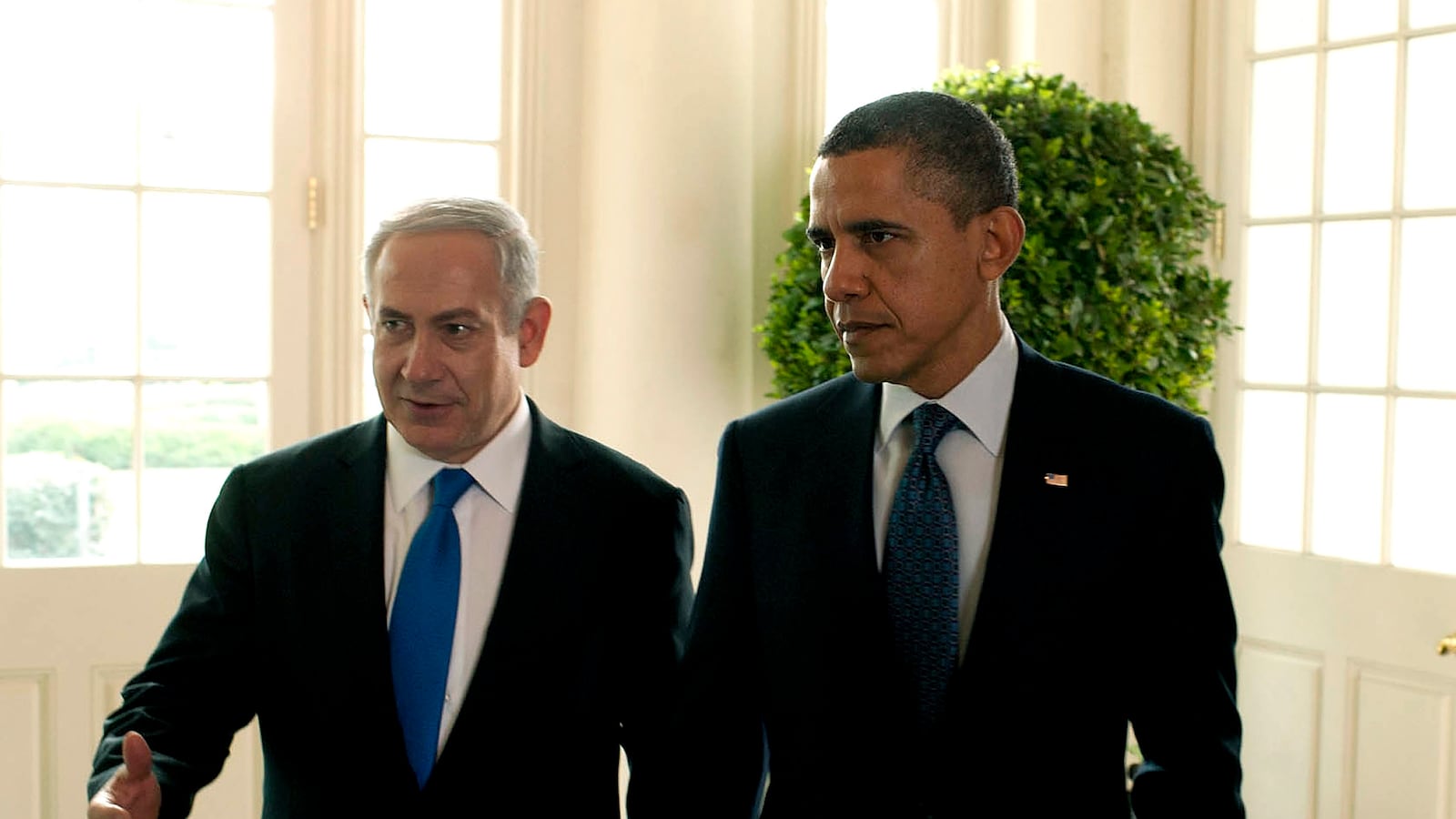The Benjamin Netanyahu government in Israel appears to be directly involving itself in the US presidential campaign. But even in this context, Israel’s Deputy Foreign Minister Danny Ayalon explosive call for an international declaration that diplomacy with Iran has failed is bold.
In fact, it’s astonishing. Declaring diplomacy dead bring the entire American Dual Track policy (the idea that a mix of sanctions and talks will bring about a change in Iran’s nuclear calculus) to collapse. By extension, declaring diplomacy dead also implies that the sanctions track has failed (a case Israel makes separately), leaving military action as the only remaining option.

The rift between Obama and Israel over Iran diplomacy dates back to the moment Obama decided to embark on diplomacy. Only 24 hours after Obama’s historic presidential victory in November 2008, then-Israeli foreign minister Tzipi Livni made Israel’s opposition to talks abundantly clear:
“We live in a neighborhood in which sometimes dialogue...is liable to be interpreted as weakness,” Livni said in an interview with Israeli Radio. Asked specifically if she supported discussions between the U.S. and Iran, she left no room for interpretation, she declared: “The answer is no.
Within diplomacy, the main sticking point has been the issue of enrichment. The question boils down to this: Can Iran retain some level of enrichment under strict inspections after negotiations, or is the Western red line a complete end to all enrichment activities. The Obama administration has maintained an ambiguous position on this issue. The Israelis, however, have preferred a zero-enrichment policy, similar to that of the Bush administration. Ayalon himself told me in in October 2010 that zero-enrichment is an unbending Israeli red line. “Enrichment in Iran is certainly unacceptable,” he told me in a phone interview.
Ayalon’s latest statement should be seen both in the context of the US presidential elections (in which the Netanyahu has a clear favorite) and in the context of the larger struggle over Obama’s Iran policy. For the latter, Obama has scored only a handful of major points, due in large part to his need to avoid looking like he’s scoring points against Netanyahu. The domestic political repercussions of an open rift with the Israeli government would be unpleasant. So Netanyahu’s “up the ante” strategy carries few negative consequences for the current Israeli government.
Where does all this leave us? Well, if the United States continues to water down its diplomacy and beef up its sanctions policy on Iran, Washington will walk deeper into a conflict dynamic with Iran, and prospects for a diplomatic solution would decrease and probability of war would increase. Netanyahu would see all this as beneficial.
But, if Obama pushes back and gets entangled in a public spat with the Israeli government, it would accentuate Obama’s tense ties to Netanyahu and provide Romney with further opportunities to portray himself as a better friend of Israel. Obama strategists believe this would hurt them in the elections, particularly in key states such as Florida. Netanyahu strategists appear to agree.
Romney has already gone the extra mile to position himself below Netanyahu in the murky pecking order of US-Israeli relations. In December, Romney declared that when it came to sensitive issues facing Israel, Romney would follow Netanyahu’s lead. “I'd get on the phone to my friend Bibi Netanyahu and say: 'Would it help if I say this? What would you like me to do?” he said.
During his recent visit to Israel, even the Israeli press was surprised by Romney’s deference to Netanyahu. A Haaretz headline read: In Jerusalem speech, it was Romney's voice but Netanyahu's words. “The speech itself sounded as if it could have been written by Netanyahu's bureau,” Haaretz’s Barak Ravid wrote.
Still, I remain skeptical of the idea that the risk of war has increased significantly. There is a cry-wolf element here and both the markets and the general audience about starting to become numb to the frenzy about the imminence of an Israeli attack, created not by the media, but by the Israeli cabinet itself.
If an attack does occur by November, it would be even clearer that what drove the Netanyahu government’s strategy and ultimate decision was not any technical advancement in the Iranian nuclear program, but the American political calendar.
Netanyahu would arguably be trying to preempt—not an Iranian nuclear attack—but the reelection of Barack Obama.






